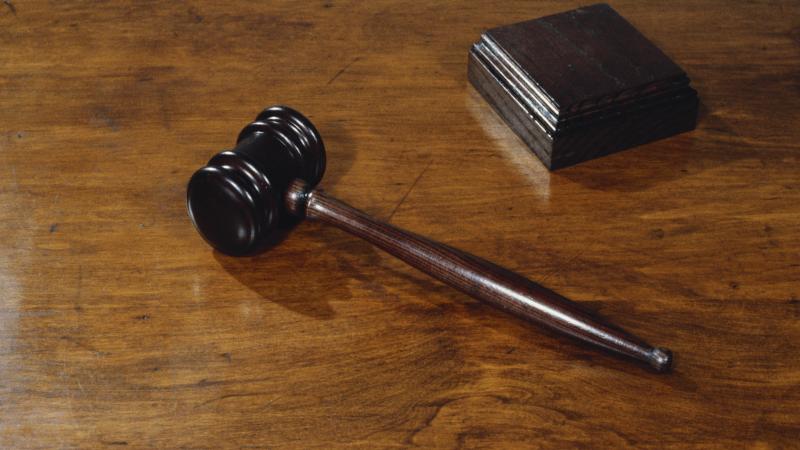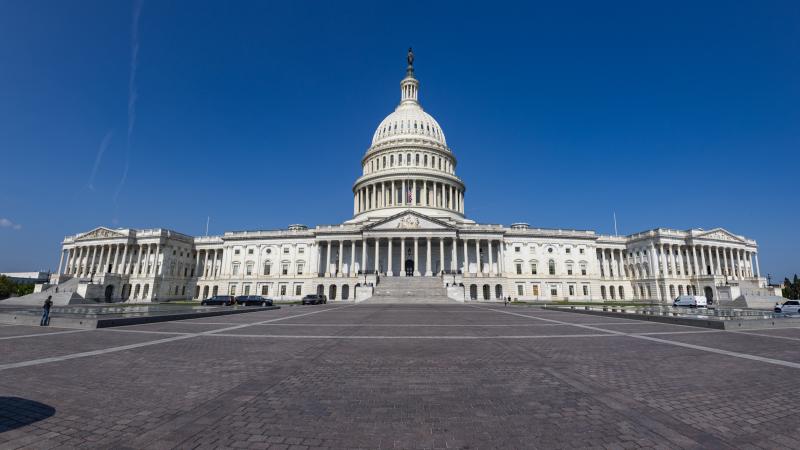Supreme Court slapdown of Judge Boasberg sends message to federal judges on overreach
In a 5-4 decision, the justices opted both to overturn the Boasberg TRO halting Trump’s enforcement of the AEA, but also declared the D.C. District of Columbia an inappropriate venue for the case in light of the convicts’ detention in Texas.
The Supreme Court decision reversing U.S. District Judge James Boasberg’s block on President Donald Trump’s deportation of gang members under the Alien Enemies Act sent a stern message to federal judges nationwide that overreach and venue shopping won't be tolerated.
The Trump administration has witnessed a record number of temporary restraining orders (TROs) against its policies, with lower-level federal judges imposing sweeping blocks on executive actions, notably those involving immigration.
The Department of Justice has repeatedly urged the Supreme Court to narrow the scope of federal injunctions or to clarify the extent of lower court judges’ authority to interfere in executive branch operations.
In a 5-4 decision, the justices opted Monday both to overturn the Boasberg order halting Trump’s enforcement of the AEA, but also declared the D.C. District of Columbia an inappropriate venue for the case in light of the gang member's detention in Texas.
They did, however, assert that the Venezuelans in custody had the right to challenge their deportations.
“Regardless of whether the detainees formally request release from confinement, because their claims for relief 'necessarily imply the invalidity’ of their confinement and removal under the AEA, their claims fall within the ‘core’ of the writ of habeas corpus and thus must be brought in habeas,” the judges wrote. “The detainees are confined in Texas, so venue is improper in the District of Columbia. As a result, the Government is likely to succeed on the merits of this action.”
“For all the rhetoric of the dissents, today’s order and per curiam confirm that the detainees subject to removal orders under the AEA are entitled to notice and an opportunity to challenge their removal,” they added. “The only question is which court will resolve that challenge. For the reasons set forth, we hold that venue lies in the district of confinement.”
Texas courts are part of the Fifth Circuit Court of Appeals, one of the most conservative courts in the nation. The change of venue represents a partial win for Trump as the courts are far more likely to be receptive to government arguments on immigration authority.
The need for due process, however, will slow the deportation process to a degree. Trump had hoped to use the AEA to speedily remove members of the Venezuelan gang Tren de Aragua, which gained notoriety in 2024 for its takeover of several apartment complexes in Colorado.
Trump did notch a bonus win, however, after Chief Justice John Roberts blocked a deadline Boasberg imposed to repatriate an illegal alien from Venezuela whom the administration sent to El Salvador.
Trump allies acknowledged that the decision represented a victory, but stopped short of celebrating in light of its limited scope.
Sen. Ron Johnson, R-Wis., told Just the News that "this ruling provides only a temporary reprieve in one case among many where partisan Federal District Court judges are throwing up roadblocks to frustrate President Trump's efforts to honor his campaign promise to secure the border and deport illegal immigrants.
"It's welcome, but the Supreme Court needs to do far more to rein in district judges who are exceeding their constitutional authority," he added.
Harvard Law School Professor Emeritus Alan Dershowitz, moreover, opined that "[i]t looks like SCOTUS will rule that Trump has broad substantive power to deport but he must exercise that power within due process constraints."
The decisions on Monday represent one of the first actions from the nation's nine justices to chastise lower courts over forum shopping and the excessive issuance of TROs.
An April 2024 study from the Harvard Law Review found that 96 TROs had been issued since President George W. Bush took office up until the publication date. Sixty-four of those were under Trump’s first term. Biden faced only 14 and Trump’s second term has already exceeded that total.
The administration previously highlighted to the court that "District courts have issued more universal injunctions and TROs during February 2025 alone than through the first three years of the Biden Administration.”
“That sharp rise in universal injunctions stops the Executive Branch from performing its constitutional functions before any courts fully examine the merits of those actions, and threatens to swamp this Court’s emergency docket,” acting Solicitor General Sarah Harris writer in March.
Harris had asked the justices to narrow the scope of several lower court orders blocking Trump’s executive order directing federal agencies to interpret the 14th Amendment as not granting citizenship to the children of illegal aliens.
While the Boasberg case and the challenges to the birthright citizen executive order address different legal issues, the justices’ decision on Monday could signal how they may approach some of the other appeals.
The condemnation of the case being brought in the District of Columbia rather than Texas, for instance, could suggest the court appears poised to take a more cynical view of cases brought in venues traditionally favorable to the party out of power.
The Harvard Law Review study found that 86.5% of the TROs issued from the Bush presidency through 2024 were issued by justices appointed by a president of the opposite party from the one in power at the time.
Some of the more conservative justices previously warned of the need to address the scope of a lower court judge’s authority, with Associate Justice Samuel Alito issuing a scathing dissent in early March in which he raged over the court’s decision to keep in place a lower court order demanding that the administration distribute USAID funds.
"Does a single district-court judge who likely lacks jurisdiction have the unchecked power to compel the Government of the United States to pay out (and probably lose forever) 2 billion taxpayer dollars?” he wrote. “The answer to that question should be an emphatic 'No,' but a majority of this Court apparently thinks otherwise. I am stunned.”
Associate Justice Clarence Thomas, for his part, wrote in 2018 of TROs that "[i]f their popularity continues, this court must address their legality.” The Monday order sidestepped the issue and made no determination as to the legitimacy of TROs in general.
In the meantime, Republican lawmakers have explored alternative means of reining in federal judges absent a Supreme Court decision. Sen. Chuck Grassley, R-Iowa, for instance, has introduced legislation to limit judicial injunctions to the parties in the case, rather than allow them to issue a nationwide rule.
"When a national injunction is put in place, it affects all the other 92 district federal district courts, I should say, court districts throughout the country," Grassley told Just the News.
"It becomes national. We want to limit what the judge can do to that district and to the people before it. And the second thing is, we want it to be appealable very quickly, so if the judge screws up constitutionally, we can do something about it."















